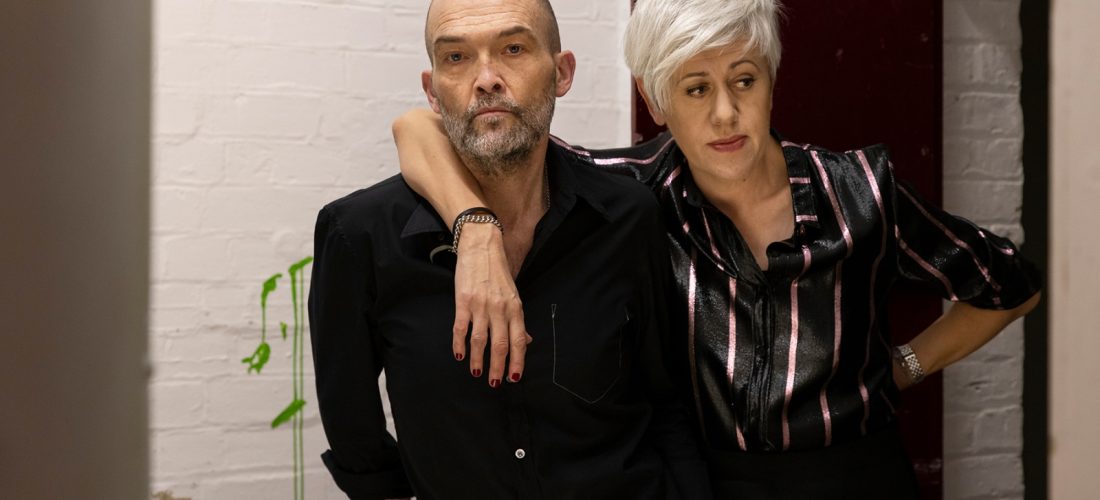Everything But the Girl Pick Up Where They Left Off While Keeping It Fresh On ‘Fuse’
Who would have guessed? Everything But The Girl have returned in one of the year’s most surprising—and welcome—comebacks. The married London duo of Tracey Thorn and Ben Watt quit making music together in 2000, taking time to raise their family while working separately. Fuse is their first collaboration since 1999’s underrated gem Temperamental, which topped off the amazing Nineties trilogy they began with Amplified Heart and Walking Wounded. But Everything But The Girl hit home with their trademark style of ghostly electro-pop, with Thorn’s melancholy voice floating through the glitchy beats.
Nobody expected a return like this—but then, nobody’s ever really known what to expect from this duo. It was a surprise when these indie kids got famous in the Eighties; it was a surprise when they got drastically more brilliant (and more famous) in the Nineties; it was a surprise when they stopped in the 2000s. They’ve spent their whole career defying expectations.
The only thing predictable about Fuse is how strong the songs are, facing up to adult angst and modern dread. “Nothing Left To Lose” sets the tone, as Thorn sings, “I need a thicker skin / This pain keeps getting in.” The two-step groove builds up to the climax, where she pleads, “Kiss me while the world decays / Kiss me while the music plays.”
Everything But The Girl started out as a moody indie-pop duo, with a taste for cocktail-lounge jazz and bossa nova. Thorn and Watt, a couple since they met at school in 1982, were simpatico musical partners. Before that, she’d already been in the influential postpunk group, the Marine Girls. But they had their creative breakthrough in the 1990s, after Ben Watt had a near-fatal health crisis. They grew up with a bang on Amplified Heart, an acoustic folk-soul cult fave. Then things got weird: “Missing” blew up into a freak pop hit, in a dance remix by Todd Terry. It reached Number Two in the U.S., in heavy rotation with Alanis, Mariah, and Boyz II Men.
Everything But The Girl responded by embracing clubland on Walking Wounded and Temperamental, exploring deep house and drum-and-bass, in the toughest tunes of their career. Temperamental, recorded right after the birth of their twin daughters, was their last shot together. Yet they remained prolific. Watt became a DJ, producer, club owner, and label boss, with his house label Buzzin’ Fly, while writing books and making albums, most notably Fever Dream in 2016. Thorn made four solo albums and wrote books, including her memoirs Bedsit Disco Queen and My Rock ’n’ Roll Friend.
Fuse picks up right where Temperamental stopped, as if they’re hitting play on a cassette they’ve kept on pause for 24 years. But they keep it fresh, using the latest digital effects to warp, filter, mutate Thorn’s voice into a deeper, more dolorous instrument. That suits the adult tone of the songs. “No One Knows We’re Dancing” is a shut-in on a Sunday afternoon, imagining all the fun the party people are having in the world outside. “Interior Space” is a confused synth ballad, with Thorn crackling through static to lament, “My head is an alien place.” “Karaoke” is a downtempo confession of going out alone to sing with strangers in the dark. As Thorn sings, “You take a breath and here goes / You hit the highs and own the lows.”
“Run a Red Light” is the heart of the album, musically and emotionally—an astonishingly beautiful fantasy of late-night clubbing. Over poignant jazzy piano chords, Thorn sings about a world where you can “forget the losers, forget the morning, put a tune on, put your feet up.” The narrator is a would-be superstar DJ who begins the night with “a little bump from a car key.” But on a deeper level, it sounds like it could be the story of a couple finally stepping out and going back on the town, after too many nights at home. You can hear a shiver of fear in it, plus a tingle of anticipation—a moment that sums up the essence of Everything But The Girl.
